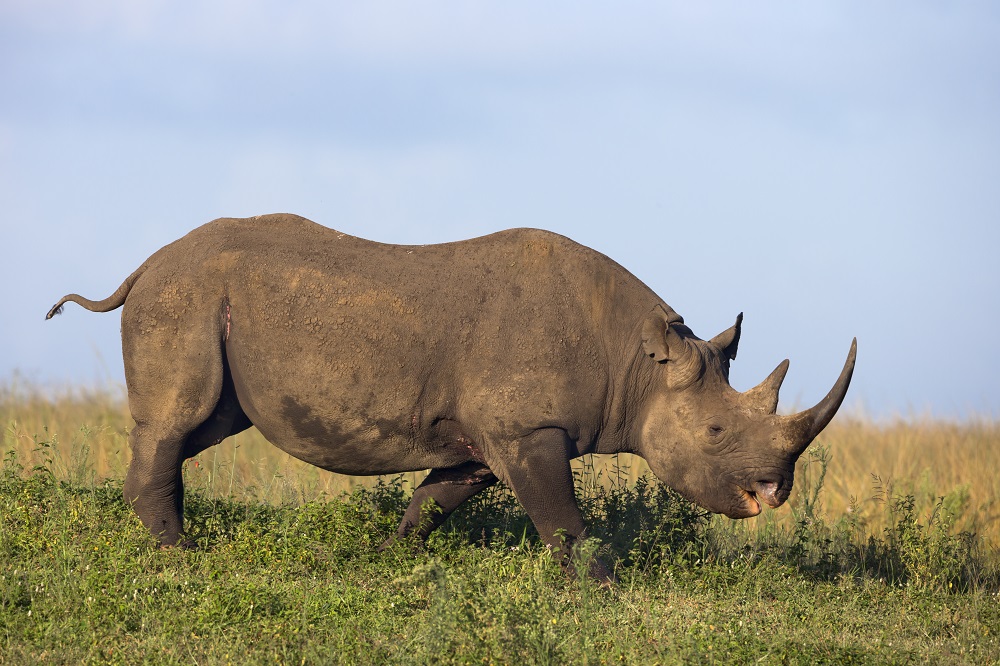Ethical fundraising: complexity, cryptocurrencies and NFTs
For our conservation partners in Africa and Asia, saving rhinos means daily anti-poaching and wildlife monitoring patrols, maintaining fences, and engaging with local people to promote conservation and human/wildlife co-existence. For those of us based in the UK, however, saving rhinos means raising awareness of the threats to rhinos – poaching and habitat loss, demand for illegal wildlife products, climate change and global biodiversity loss – and, of course, a great deal of fundraising.
There has always been a huge need to raise funds for conservation, and in recent years the Covid-19 pandemic has shut down most of the ecotourism services on which many protected areas rely for income, making that need even greater. So, we work hard to fundraise ourselves, and we are supported every day by amazing partners who help us raise money for rhinos – zoos and wildlife parks, private-sector organisations, and of course, individuals who run marathons, climb mountains, and bake cookies to help keep rhinos safe.
But, while there is great pressure to raise as much money as possible, there is also a need to ensure that the money we raise doesn’t come from sources that, directly or indirectly, threaten our mission to save rhinos. And, as a conservation organisation, our work and our values are inextricably linked with the values of sustainable development, human rights and social justice; raising money from sources that contradict those values would undermine not only our mission but also our very identity as an organisation, as well as the trust of our many partners and supporters around the world.
So, Save the Rhino International has a very carefully crafted Ethical Fundraising Policy, that we put a lot of effort into keeping up to date. Some areas are clear: we recognise that the climate crisis is a clear and present danger to rhinos, so we won’t take donations from fossil fuel companies. But most instances are less clear, and often very complicated, and need to be considered on a case-by-case basis, sometimes with much research.
A recent case has been the growth of cryptocurrencies and, even more recently, non-fungible tokens (NFTs). We have, of course, been aware of ‘bitcoin’ for some years, but in the past year or so confidence in working with these strange new currencies seems to have increased, and NFTs have emerged as a way of trading in rare digital goods. Recently, people have started offering us donations in or derived from cryptocurrencies and NFTs. We are always very keen to explore new ways of raising resources for rhinos, and therefore we began to learn about global blockchain currency transactions.
What are cryptocurrencies?
Cryptocurrencies are a potentially exciting ‘new’ technology. They offer extremely fast transactions with very few restrictions on payments (there are no bank holidays with blockchains). They offer anonymity, which is sometimes a good thing but can be a double-edged sword, as discussed below; but the blockchains in which all transactions are recorded act as public ledgers, so fraud is difficult.
On the downside, the lack of regulation of cryptocurrencies also means a lack of protection – if one loses one’s crypto-wallet, there is no authority to refund it. The value of cryptocurrencies can fluctuate significantly. And the anonymity inherent in blockchain transactions means that it may not be possible for a charity to identify the source of a donation.
This last point is a concern, and possibly a dealbreaker, for any charity. But even more concerning, particularly for a conservation charity, is the current environmental footprint of cryptocurrencies. The intensive ‘proof-of-work’ processes required to ‘mine’ cryptocurrencies are carried out by powerful computers, and more than 60% of the world’s data-processing centres still run on non-renewable energy. The country with the greatest number of cryptocurrency ‘mining centres’ is China, which still derives the majority of its energy from coal. Other mining centres move around the world to where energy is cheapest and are often difficult to track.
Many studies on the energy consumption of cryptocurrencies show that mining currencies like Bitcoin consumes more energy than mining the equivalent values of physical minerals such as gold and platinum. Other studies show that the global energy consumption of cryptocurrency mining may well be greater than that of various medium-sized countries.
Some cryptocurrencies are looking to move to more sustainable approaches to currency generation, such as ‘proof of stake’. These approaches are, in Save the Rhino’s view, certainly moving in the right direction, but are as yet unproven.
Non-Fungible Tokens
NFTs – non-fungible tokens – have been featured heavily in the news recently as a way of representing the ownership of unique or rare digital assets. NFTs use the same blockchain technology as cryptocurrencies, primarily on the Etherium platform that ‘mines’ currency in the same way as Bitcoin. There is debate as to whether the environmental footprint of an NFT should be calculated as only the footprint of the sale of the NFT as a single transaction, or as some portion of the footprint of the underlying platform on which it depends. In Save the Rhino’s view, it is difficult, and probably disingenuous, to separate NFTs from the blockchain platforms with which they are so closely interconnected.
In this case we have, therefore, concluded that while Save the Rhino has no objection to these new technologies in principle, we will not be accepting donations in cryptocurrencies or NFTs, or donations derived primarily from the sale of cryptocurrencies or NFTs, until the generation of those currencies moves onto a sustainable footing and no longer represents a threat to our conservation mission.
Like all other ethical fundraising issues, we will keep a close eye on the situation and revisit it if things change and the fossil fuel footprint of blockchain technology reduces significantly. At that point, the anonymity issue may still prevent Save the Rhino from accepting cryptocurrency donations, or it may be that our organisation can take advantage of this potentially exciting new approach to raising funds for rhinos.









